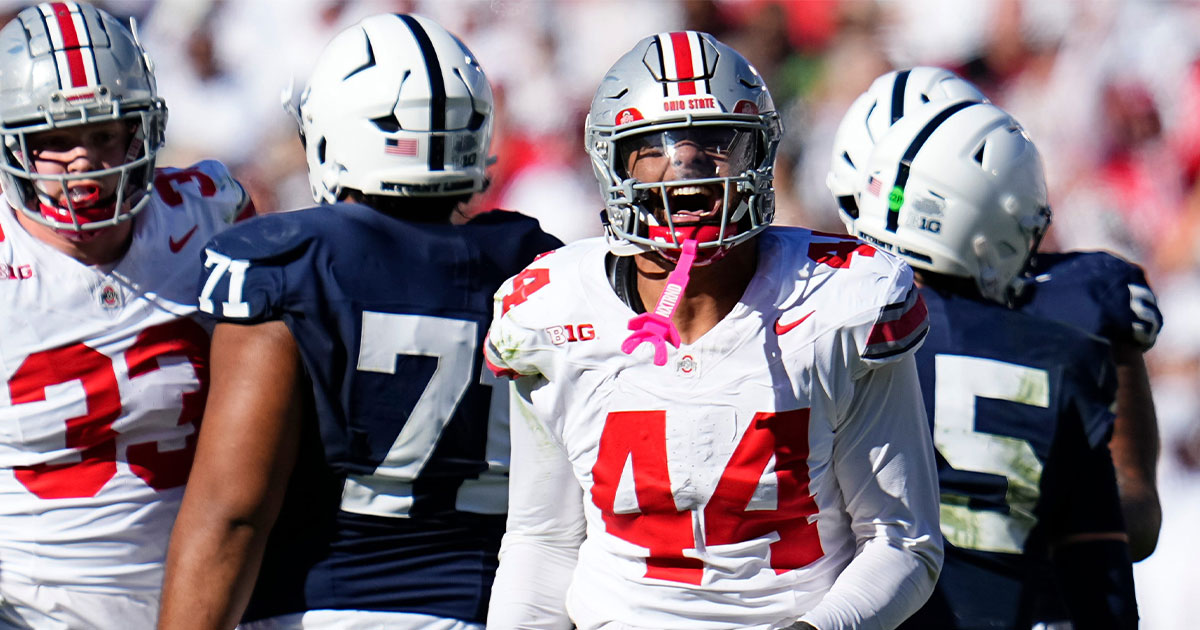The older brother of a starving Georgia boy who weighed just 36 pounds when he fled his home to beg for food has laid bare his own hellish upbringing at the hands of accused parents Tyler and Krista Schindley.
The well-to-do Christian couple were arrested after their emaciated ten-year-old was found wandering barefoot through their upscale Griffin neighborhood last Friday, telling locals he had been locked in a closet and begging them not to send him back.
Authorities have charged the pair with attempted malice murder and neglect for allowing their adopted son’s weight to plummet to less than that of a typical four-year-old.
They appeared briefly in Spalding County court Tuesday dressed in their prison uniforms, but without a lawyer. Their bond hearing was postponed until June 12.
‘This child was, simply put, being starved to death, and it is tragic,’ Griffin District Attorney Marie Broder told a press conference last week.
DailyMail.com can now reveal that Tyler, 46, and Krista, 47, have been prolific foster parents over the past decade, taking in eight different kids, adopting five of them, while raising three biological sons.

Tyler and Krista Schindley were arrested on multiple charges of attempted murder and abuse after their emaciated son was found by neighbors. They made a brief appearance in court today

The couple appeared briefly in Spalding County court Tuesday dressed in prison uniforms and were due for a bond hearing, but have not yet obtained lawyers for their defense

Krista, 47, and Tyler, 46, are pictured in a 2013 photo on her social media. The couple have beaten and tormented several members of their sprawling brood, according to one of Tyler’s biological sons who says he fled their home at age 17 and never returned
The churchgoing pair, who run a spa business and live in a $450,000 suburban home boasting five bedrooms and a pool, have won praise from friends and neighbors for their apparent altruism.
But behind their clean-cut façade, the couple have beaten and tormented several members of their sprawling brood, according to one of Tyler’s biological sons who says he fled their home at age 17 and never returned.
‘They were abusive to me physically and mentally. It was getting worse and worse every day and I just couldn’t take it anymore, I had to run away,’ the sibling told DailyMail.com, speaking on condition of anonymity.
‘I couldn’t leave my room. They would beat me very badly. They would tell me terrible stuff like, you’re a waste of space, a disappointment, you shouldn’t even be alive. My dad would try to convince me I wasn’t his son.
‘There were times that I tried asking for help but they would say bad things about me, tell people I was a problem child, oh he’s just spouting off lies again. So nobody ever believed me.’
The sibling says his ordeal stems back to 2012 when Tyler split from his biological mom and married Krista less than a year later, relocating the family from Sandusky, Ohio, to a smart-four bed home in Jackson, Georgia.
Their family unit initially comprised two sons from Tyler’s first marriage, one of whom suffers from autism, as well as a son from Krista’s previous relationship.
After temporarily fostering three more children, Krista and Tyler adopted five biological siblings – twin boys and twin girls, all aged around four, and their six-year-old brother, who is the youngster they are now criminally charged with neglecting.
By then Tyler’s eldest son says he was already accustomed to his dad and stepmom meting out barbaric punishments that included locking him in his room without food for several days at time.
On other occasions he was forced to pick up rocks for hours or run bootcamp-style laps of their swish neighborhood in the pouring rain.

The churchgoing pair run a spa business and live in this $450,000 suburban Georgia home that boasts five bedrooms and a pool


The couple have been charged with attempted murder, in addition to several counts of child abuse
The punishments weren’t dished out universally, however – just to himself, his autistic biological brother, and the adopted six-year-old boy, but never to the sets of twins or Krista’s son.
‘When I was young they would put dish soap in our mouths and make us leave it sitting in there, we couldn’t spit it out,’ recalled the son, now in his early 20s.
‘As we got older they realized that didn’t work so they decided to turn up the abuse by hitting us. It went from spanking to hands, to belts, wooden spoons. I’ve been whipped with cords.
‘The worst I’ve had was a baseball bat. They would hit me in the sides, my back, anywhere that could be covered up with clothing. It became normality for me because it happened every day, even multiple times a day.
‘I would come home from school wondering, what are they going to put on me today, how hard are they going to hit me?’
The brother said he was frequently left alone to care for the younger children – like an ‘unpaid nanny’ – while strict vegans Tyler and Krista worked long hours and obsessed over their standing at Eagles Landing Baptist Church.
He wasn’t allowed a phone, bank account or social media and when he got part-time jobs at Dunkin’ Donuts and Subway he claims he was forced to hand over his earnings.
‘My dad was very passive before Krista came along but she was very narcissistic, very manipulating, and I think he was willing to do whatever she wanted. I think they enjoyed having power over us,’ he told DailyMail.com.
‘There were times when I asked them what I had done wrong but they wouldn’t answer me or they would say things like, you breathed the wrong way or you looked at me the wrong way.
‘I would think to myself, they adopted those five kids but they only do this to me, what did I do wrong? I can’t be that bad of a child. I know I’m not.’
While most of the alleged abuse outlined in the older son’s account was hidden from public view, several former neighbors were able to confirm they saw the boys running ‘military’ style in the rain and filling buckets with rocks.
A woman who bought the $400,000 Jackson property from the Schindleys in 2020 told DailyMail.com she found two of the bedroom windows had been covered with black-out paper and the light switch taped over in another.
The home was otherwise immaculate but she was curious enough to text her realtor who passed on a reply from Tyler saying it was to stop the kids flashing the lights on and off at night.
Former neighbor Rebekah Meyer, 32, whose daughter attended the same elementary school as the allegedly neglected boy, recalled Tyler complaining about the teachers being too soft and deciding to homeschool his kids instead.
‘The son had a few behavioral issues and meltdowns in class which is what you might expect from a child who had come through the foster system and experienced a lot of trauma,’ she said.
‘His father said he didn’t like the school, didn’t like the way they handled the boy. He said he couldn’t understand how they let him rule the classroom.’
By the time the Schindleys had sold up and moved 20 miles west to Griffin, an upscale Atlanta suburb, Tyler’s older son had decided he was not going with them. He was 17 by then but not allowed to drive.
‘They left me at home while they went to church so I packed two bags of clothes and I just kept walking,’ he recalled.
‘I walked about 20 to 30 miles. They had already beaten me that morning, blaming me for their marriage problems.’
When officers from the Henry County Police Department came to his workplace the next day he says he filed a report about the abuse and refused to go home.
He says he also reported the Schindleys to DFCS, the Georgia Division of Family & Children Services, but nothing came of either complaint.
In the months and years that followed, the runaway son worried more and more for the array of adopted and biological siblings he had left behind.
His autistic brother, now 19, left the home earlier this year when the Schindleys abruptly sent him back to his biological mom in Ohio without explanation.
Their worst fears were confirmed last Friday, however, when the ten-year-old adopted sibling wandered into the street barefoot, confused, saying he was walking two miles to the Kroger grocery store to find food.
A Good Samaritan ushered the youngster into her garage and dialed 911 even as Krista raced out of her home and drove around the neighborhood anxiously looking for him.

‘They were abusive to me physically and mentally. It was getting worse and worse every day and I just couldn’t take it anymore,’ the sibling said of his father and stepmother

Krista Schindley poses with her eldest son Ethan Washburn at a Float Spa booth. Ethan does not live at the home and is not one of the four children mentioned in the affidavit


Tyler is pictured in Facebook photos enjoying an active lifestyle. He, along with is wife, is in jail facing charges including false imprisonment, battery and cruelty to children
The ‘thin and pale’ little boy begged cops to ‘please not make him go back.’ He weighed about half the healthy weight of a boy his age and was taken to the hospital with a low heart rate, according to prosecutors.
Court documents revealed the boy was also suffering from untreated dental injuries and facial ‘disfiguration’. Neighbors were stunned to learn his true age, believing the child to be around six years old.
Tyler and Krista are accused of causing ‘cruel and excessive physical and mental pain’ and leaving him alone for ‘extended periods of time, and on multiple occasions, with no access to lights, food, clothing or adult interaction and/or assistance.’
‘I have tried many child abuse cases in my career, and this child was, simply put, being starved to death. I truly believe that if he had not gotten out of that home, this would be a very different case,’ DA Broder told reporters.
With the Schindleys in jail facing charges including false imprisonment, battery and cruelty to children, their recovering adopted son and two sets of twins have been taken back into state care.
‘It’s not for me to say what happens to my dad and Krista – I just want the truth to be out there,’ their son added.
‘All they cared about was projecting this image of a perfect family. But look at what’s happened – my five former siblings are going to be scattered around all over the place and I don’t think I’ll ever see them again.’



































